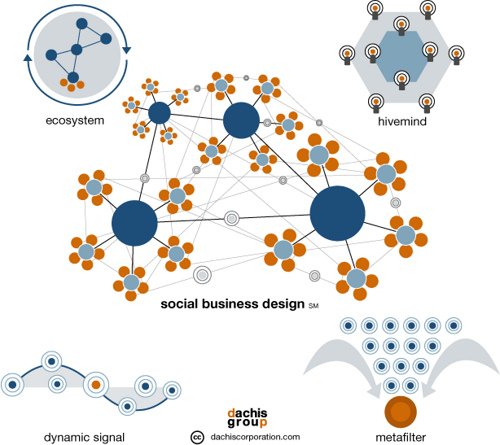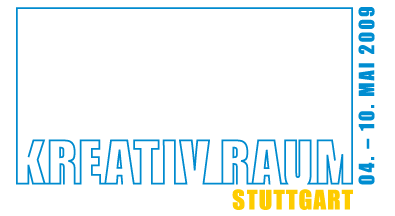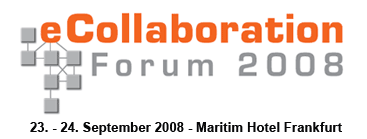I am currently preparing two in-house social media workshops (both will be borrowing heavily from the Enterprise 2.0 playbook as well). While one will lean a bit onto social media monitoring, the other one will focus on using social media instruments for internal knowledge dissemination in yet to be formed professional social networks.
Now, I am trying to pursue an open ended and flexible approach to both talks and was thus looking around for some nifty visualizations to provide some additional structuring without being too restrictive (yes, I was shortly pondering the use of wordles too) . Honestly, there are a lot of nice looking social media whatever visualizations – including David Armano’s take on social business design which I bookmarked then and which served me as kind of starting point:
Basically it’s a visualization that guides us onto good questions, and a lot of room for improvisation in an adaptive workshop setting too: What would businesses be like if they were truly social?:
Imagine if a company like GM, was at the core “social”. Not just participating in “social media”—but through every part of their business ecosystem, were connected—plugged into a collective consciousness made up of ALL their constituents, from employees to consumers to dealers, to assembly line work[er]s etc. What if big organizations worked the way individuals now do. We’re actively using cloud services, mobile, networks and applications that offer real time dynamic signals vs. inefficient and static e-mail exchanges. In short, imagine if what makes “Web.2.0″ revolutionary was applied to every facet of an organization transforming how we work, collaborate and communicate? We think this is possible. And we’re calling it “social business design“.
I really like that approach, for one it’s probably one small step closer to some kind of nice and “easy as it gets to explain” consultancy “products” (probably neede for the Enterprise 2.0 field to flourish, see comments #2 and#4 at the link, alas german language), second it’s incorporating a good part of the fuzzy social stuff we all know is important into the concept, while not talking tools:
[there are four] archetypes of Social Business Design:
Ecosystem – a community of connections
Hivemind – the socially calibrated mindset of individuals
Dynamic Signal – the constant multi-faceted means of collaboration
Metafilter– a method of finding signals in vast amounts of noise
Think informal social networks and their role for the real workings of organizations. Or think of the importance of “social capital”. So while some differentiation and clarification is still necessary, this may be an interesting social media (implementation) heuristic (aka “consultant’s product”).
OK, for posts on the concept see these interrelated posts (this seems to be the Dachis team together with David and Jeff Dachis, of course):
Peter Kim: Reflections on Social Business
Kate Niederhoffer: Social Business Design: a social psychologist’s take
Jevon MacDonald: Taking the Leap: Social Business Design
Especially Jevon is expanding on the intricate tasks that arise when companies become more (inter-)active, ie. matters of organization. Lately he’s been posting Understanding the role of Enterprise 2.0 and moving towards a Social Business and then Social Business Design and the Real Time Enterprise (now I get the underlying pattern behind all those scattered posts, Jevon – all the best for the dachis team).




